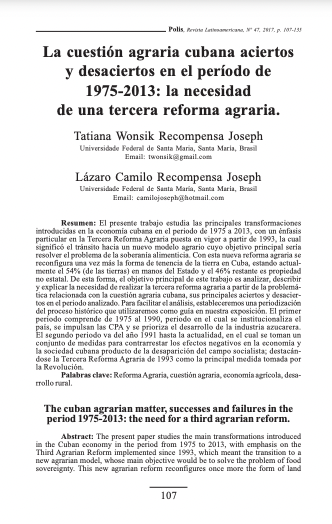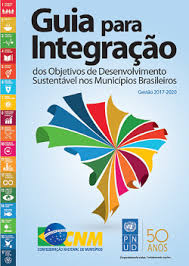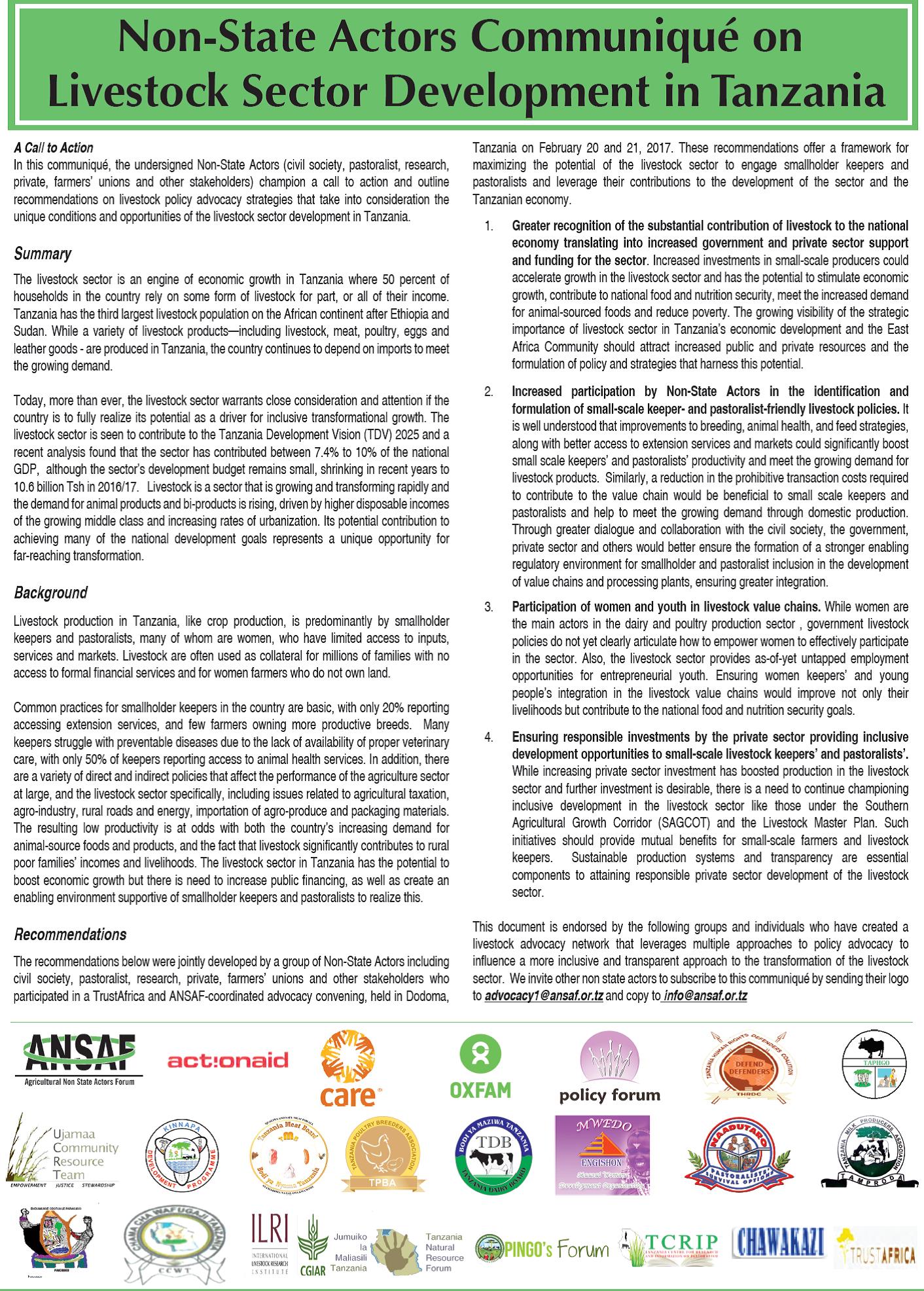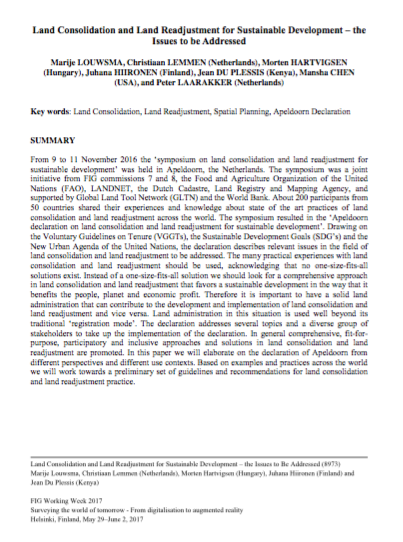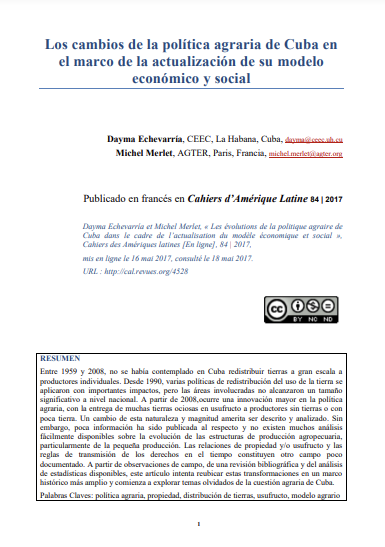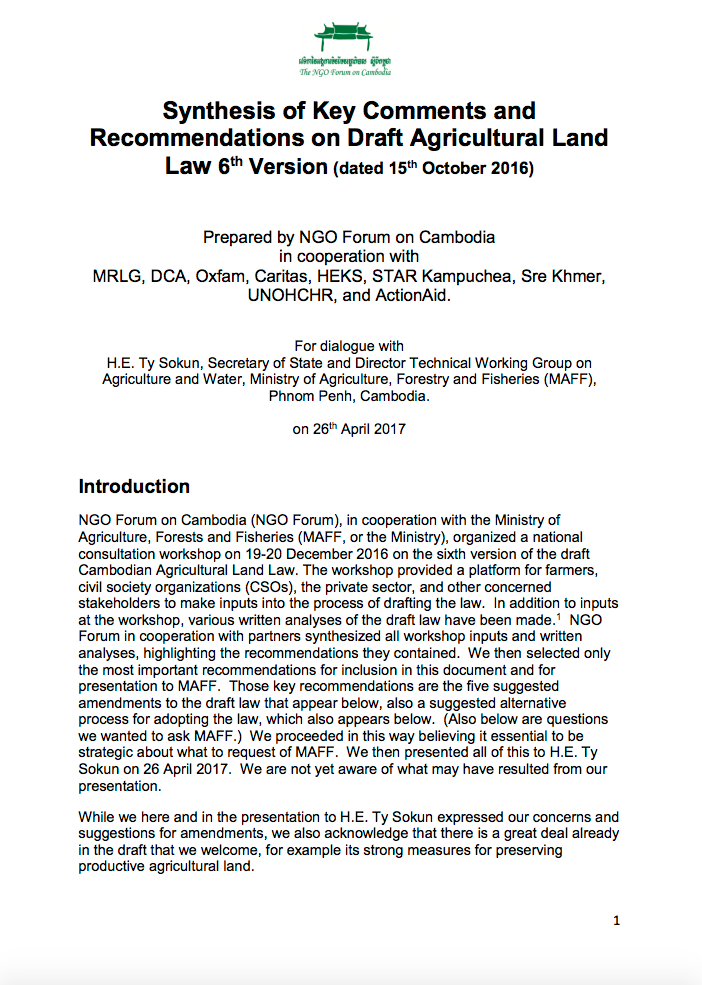La cuestión agraria cubana aciertos y desaciertos en el período de 1975-2013: la necesidad de una tercera reforma agraria
El presente trabajo estudia las principales transformaciones introducidas en la economía cubana en el periodo de 1975 a 2013, con un énfasis particular en la Tercera Reforma Agraria puesta en vigor a partir de 1993, la cual significó el tránsito hacia un nuevo modelo agrario cuyo objetivo principal sería resolver el problema de la soberanía alimenticia. Con esta nueva reforma agraria se reconfigura una vez más la forma de tenencia de la tierra en Cuba, estando actual- mente el 54% (de las tierras) en manos del Estado y el 46% restante es propiedad no estatal.

